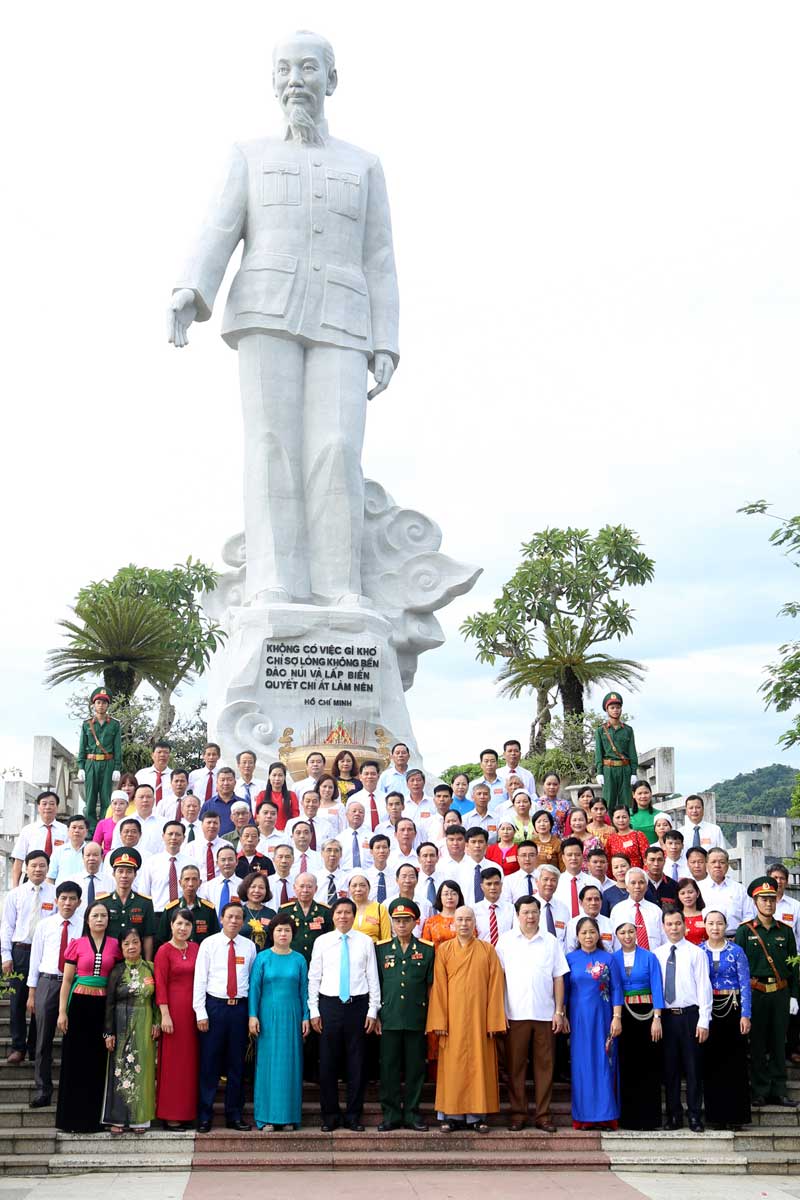
(HBO) – People of ethnic minority groups, accounting for 74.3 percent of the total population of Hoa Binh, mostly live in rural areas with difficult conditions. Therefore, over the years, the Party Committee and administration of Hoa Binh have paid great attention to promoting unity among ethnic groups and improving the living conditions of ethnic minority communities, considering it as a major task of the whole political system.
The provincial Party Committee, People’s Council and
People’s Committee have led and instruct all sectors, departments and the whole
political system to engage in addressing difficulties to enhance the material
and spiritual conditions of the community.
The provincial Party Committee, People’s Council and
People’s Committee have directed relevant agencies to coordinate and issue
documents to institutionalize and concretise policies and orientations of the
Party, State and the province on ethnic affairs, while assigning specific tasks
to each sector and agency in line with the realization of policies, programmes
and projects on socio-economic development.
Particularly, the province has directed localities to combine
funds of centrally-invested programmes and projects on ethnic community with
other financial resources to improve infrastructure system in ethnic areas,
with priority given to transport, irrigation, health care, education and
culture works.
At the same time, the province has invested greatly in science-technology
transfer programmes, projects and models to promote production in rural areas.
Notably, many agricultural production models have been
implemented with high economic efficiency, creating concentrated production
areas, helping create many major products in cultivation, breeding, and
forestry, contributing to boosting socio-economic growth and improve income for
locals.
Thanks to the programmes and projects, the infrastructure
system in ethnic minority areas of the province have been improved, changing
the face of mountainous areas, facilitating socio-economic development in especially
extremely difficult communes in the province.
More convenient transportation have made goods exchange and
travelling activities of the community easier, improving the material and
spiritual life of ethnic minority groups, contributing to preserving and
promoting the cultural identity of the groups.
Thanks to the direction and leadership of Party Committees
and administrations at all levels as well as the involvement of the whole
political system and efforts of ethnic minority people in getting rid of
poverty and building new-style rural area, per capita income in Hoa Binh’s
rural areas has reached 22 million VND per year. The poverty ratio among
households dropped to 14 percent in 2018, with reduction of 3-4 percent per
year on average.
The province has 82 out of its total 191 communes recognised
as new-style rural areas, 51 communes higher than that in 2015, completing the
target set by the province’s resolution one year ahead of schedule./.
Mai Chau district has firmly established itself as a standout destination on Vietnam’s tourism map, attracting both domestic and international visitors with its breathtaking landscapes, rich ethnic culture, and warm hospitality. However, beyond its natural and cultural charm, a secure and well-managed tourism environment has added to Mai Chau’s appeal.
As Vietnam enters a new phase of economic and administrative reform in 2025, Hoa Binh province is stepping up its efforts to streamline governance, boost economic growth, and attract investment.
The Hoa Binh provincial People's Committee held its monthly meeting on March 26 to review the progress of key projects, assess budget revenue and public investment disbursement, provide feedback on draft documents for submission to the provincial Party Committee's Standing Board, and discuss other important matters related to the committee's governance activities.
Playing a key role in Hoa Binh province’s economic development, Luong Son district has been focusing on science and technology development, innovation, and digital transformation.
Identifying the application of online public services as a key step in administrative procedure reform and e-government building, Kim Boi district has proactively provided services and supported residents and businesses in accessing and utilising full-process online public services promptly and efficiently. The locality aims to lift the rate of end-to-end online public services to over 90%, with all officials and civil servants handling tasks in the digital environment.
Nguyen Anh Tuyet, hailing from a family steeped in the ancient art of herbal medicine, is transforming local medicinal herbs into high-value concentrated extracts, elevating their worth and healing potential.



